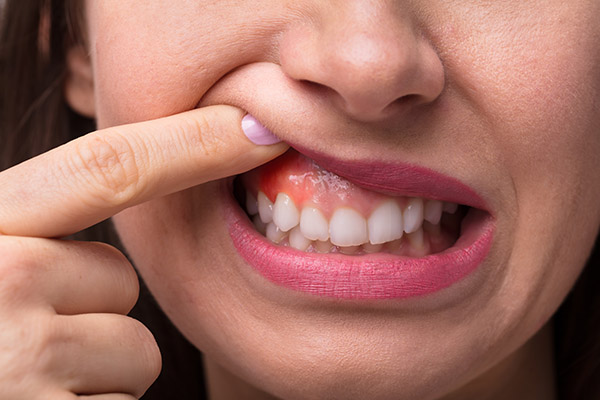 A periodontist’s view on gum disease can make you improve your oral care. Gum disease can spread to the surrounding teeth. It can also reach deep into the jawbone. This will lead to tooth loss. If you want to know more about how gum disease affects your jawbone and teeth, here are the details from a periodontist.
A periodontist’s view on gum disease can make you improve your oral care. Gum disease can spread to the surrounding teeth. It can also reach deep into the jawbone. This will lead to tooth loss. If you want to know more about how gum disease affects your jawbone and teeth, here are the details from a periodontist.
How gum disease affects the teeth and jawbone
Periodontal disease or gum disease is a gum infection from bacteria in tartar and plaque. Without treatment, the minor infection will become worse. It will lead to periodontitis. This severe form of gum disease can spread through the gum tissue. It will then reach the jawbone and other supporting tissues of the teeth. The absence of treatment from a periodontist can lead to tooth loss.
Studies show that there is a strong link between tooth loss, bone loss, and periodontitis. Losing alveolar bone mineral density makes bones more vulnerable to periodontal bacteria. This increases the patient’s risk for worsened periodontitis. It will then lead to more tooth loss.
The available treatments
Jawbone loss, severe dental pain, and tooth loss are devastating results of gum disease. The most concerning of these outcomes is jawbone loss. This can trigger the loss of other teeth. The patient then starts to have difficulties in speaking, eating, and even smiling. For this, dental implant surgery is the treatment of choice to restore the missing tooth or teeth.
Restoring self-image and protecting oral health are the main goals of gum disease treatments. These procedures depend on the degree of infection. Surgery must happen if the infection has already reached the jawbone. Jawbone loss may need a flap procedure. The periodontist will cut a flap of gum tissue and then lift it to the back. Doing so exposes the tooth roots.
The periodontist will remove the tartar from the roots and smooth out the bone. This reduces the risk of having more bacteria sticking to the area. The dentist will close the flap. Stitching will secure it. A soft tissue graft involves harvesting soft tissue from the roof of the patient’s mouth. The periodontist will then graft this tissue onto the gums.
A patient may need a bone graft if there is significant jawbone loss. The periodontist can take a healthy piece of bone from the patient’s body. The bone may also come from a donor or a synthetic source. An incision in the gums will reveal the jawbone.
The dentist will clean the jawbone and the neighboring teeth. The graft will attach to the bone tissue. It will take time, but the jawbone and the graft will fuse. This will restore the structure of the jawbone.
What a periodontist recommends for healthy teeth and jawbone
A periodontist recommends some changes in the patient’s lifestyle. This will help improve the health of teeth, gums, and jawbones. A diet rich in vitamin D and calcium can strengthen the jawbone and teeth. Daily resistance and weight-bearing exercises can strengthen the bones. Limiting alcohol intake and quitting smoking can improve the patient’s dental health. Having routine dental checks can inform the periodontist of any dental problems.
Your periodontist can help you understand more about gum disease
Gum infection may start small. Without treatment, it can affect your teeth and jawbone. Proper attention from your periodontist will stop any dental infection. Regular appointments will determine what type of treatment you need.
Request an appointment or call Charles E. Dyer IV, DDS, MS, PC at 281-213-0900 for an appointment in our Cypress office.
Related Posts
A frenectomy is a dental procedure a periodontist performs to remove or modify the frenulum, a small fold of tissue that connects the lip or tongue to the gum or mouth. While this procedure is often associated with addressing issues related to the tongue or lip, it can also be beneficial for patients experiencing speech…
Periodontics is a specialized branch of dentistry that focuses on diagnosing, treating, and managing conditions that affect the gums and underlying bone. The gums are often looked over by many regarding care. However, they play an important role in maintaining the function and health of the entire mouth. Partnering with a periodontist or a gum…
Are you searching for a "periodontist near me"? Read on to learn more. Periodontal disease requires the expertise of a periodontist near me for diagnosis and treatment. These dental professionals see many individuals at different points in the progression of gum disease. The symptoms include bleeding gums, bad breath, and deep pockets between the gums…
